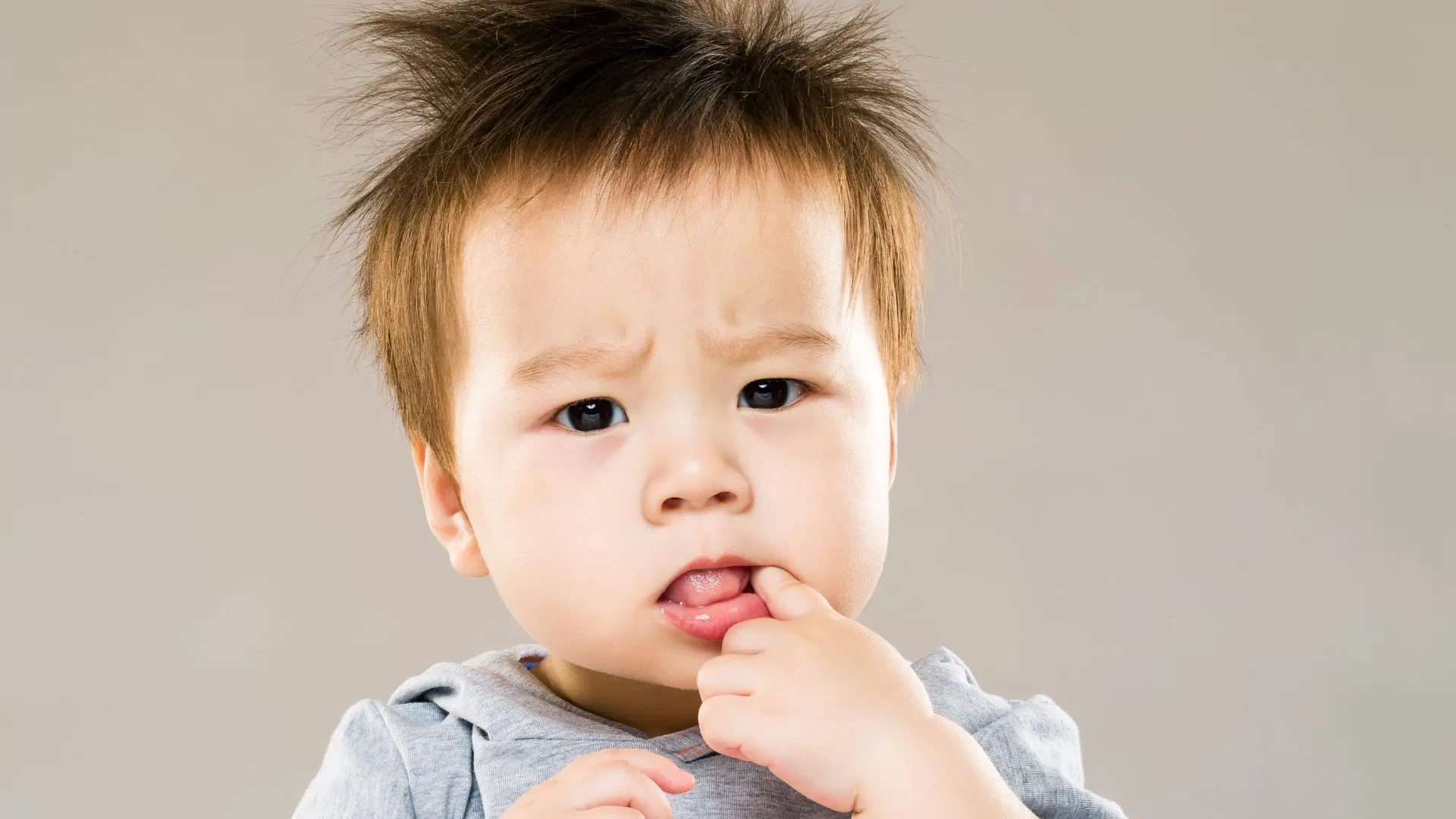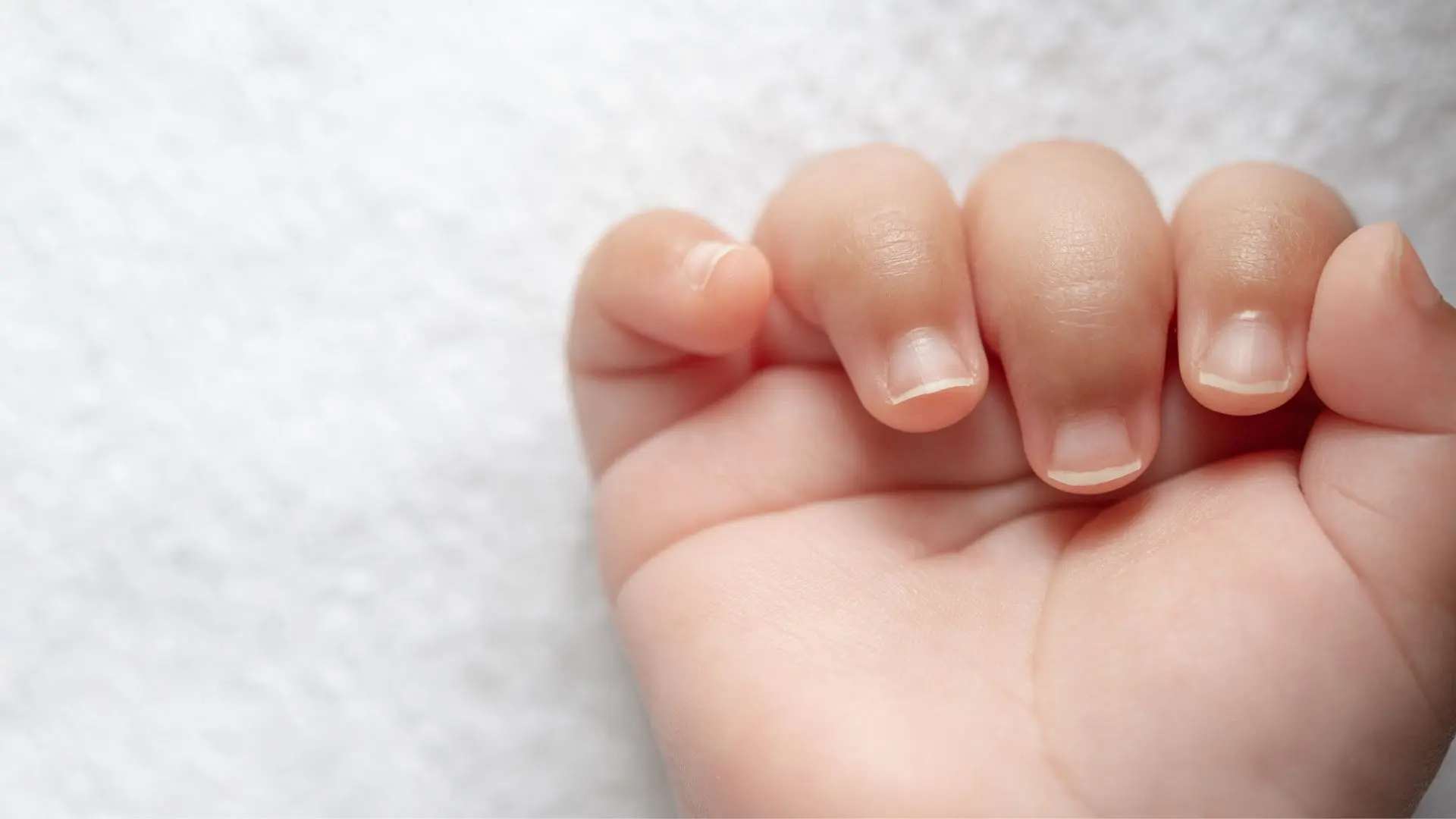
Have you caught your little one nibbling on their nails more times than you can count? While toddler nail biting might seem like just another frustrating phase, there’s more to this common habit than meets the eye. Surprisingly, it could even hint at advanced mental development.
But when should you be concerned, and how can you guide your child away from this behavior? Stick around—we’ll unpack the possible reasons behind this habit, the remedies, and how to spot red flags without losing your cool.
Toddler Nail Biting – Understanding the Habit
Nail biting is a prevalent habit in children, especially toddlers, often lumped together with behaviors like thumb-sucking or hair twirling. For most kids, it’s simply a way to explore their bodies or deal with boredom.
What Triggers Toddler Nail Biting?
- Stress or Anxiety: Even toddlers feel overwhelmed, and nail biting might be their way of coping. A sudden routine change, like starting daycare, could be the culprit.
- Curiosity: At this age, kids love experimenting with their hands—and sometimes, their teeth!
- Boredom: Nail biting can simply be a filler activity when there’s nothing else engaging their attention.
Understanding why your child bites their nails is the first step in addressing it effectively.
Could Nail Biting Be a Sign of Genius?
Here’s an intriguing thought: your child’s habit of nail biting could indicate more than just stress. Studies suggest repetitive behaviors like this may point to:
- Advanced Cognitive Abilities: Nail-biting toddlers might have heightened self-awareness or problem-solving skills.
- Improved Focus: Some experts believe habits like nail biting help children concentrate, especially during challenging tasks.
- Emotional Regulation: It’s a self-soothing mechanism that some toddlers use to calm themselves in situations they find overwhelming.
But remember, while nail biting might signal brilliance, it’s not always something to encourage.
Is Toddler Nail Biting Really a Bad Habit?
Before you panic about germs or judgmental stares, let’s clear up a few things.
When It’s Harmless
For many toddlers, nail biting is a phase they’ll grow out of. If your child isn’t causing damage to their nails or skin, it’s likely not a serious concern.
When It Becomes a Problem
There are situations where nail biting could lead to issues, such as:
- Infections: Biting can introduce bacteria into tiny cuts, leading to skin infections or even gum irritation.
- Dental Issues: Chronic nail biting can affect teeth alignment over time.
- Social Impact: Older kids might face teasing if the habit persists.
How to Stop or Control Toddler Nail Biting
Breaking the cycle of toddler nail biting requires patience and strategy. Punishment won’t work, but these gentle techniques might:
Understand the Root Cause
- Is it boredom? Provide engaging toys or activities.
- Is it stress? Offer extra comfort and talk through their emotions.
Behavioral Strategies
- Positive Reinforcement: Praise them when they’re not biting their nails.
- Set Goals: Use stickers or small rewards to encourage progress.
Natural Remedies and Home Solutions
Many parents worry about using harsh products on their children, so here are safe, natural ways to deter nail biting:
Nail Care
Keep their nails trimmed short to make biting less satisfying.
Homemade Bitter Solutions
Apply a safe, edible bitter solution like aloe vera or diluted lemon juice to their nails.
Chewable Substitutes
Introduce chew-friendly toys or healthy snacks like carrot sticks to redirect the urge.
Creative Ways to Redirect Toddler Nail Biting
Sometimes the best remedy is a bit of creativity!
Engage Their Hands
- Activities like finger painting, playdough, or fidget toys can keep their hands busy.
- Sensory toys work wonders for toddlers needing tactile stimulation.
Teach Emotional Awareness
- Use simple stories to help them understand why nail biting isn’t ideal.
- Practice mindfulness exercises like deep breathing to instill calm.
When Should Parents Worry About Toddler Nail Biting?
While most cases are harmless, here are signs you shouldn’t ignore:
- Persistent Bleeding or Pain: This could signal excessive biting that needs intervention.
- Compulsive Behavior: If nail biting is accompanied by other concerning habits, consult a pediatrician.
- Social Withdrawal: Nail biting paired with isolation might indicate deeper issues.
When to Seek Professional Help
Don’t hesitate to reach out to a pediatrician or child psychologist if the habit seems extreme or persists into later childhood.

Conclusion
So, is toddler nail biting really all that bad? Not necessarily. For some kids, it’s a quirky phase they’ll outgrow. For others, it’s a signal of stress or an incredible brain at work. Either way, as a parent, your role is to observe, guide, and address the habit with empathy and patience.
Remember, every toddler is unique, and what works for one might not work for another. But with the tips above, you’re well-equipped to handle nail biting like a pro.
You may also be interested in : The One Thing Most Parents Miss When Dealing with Toddler Tantrums